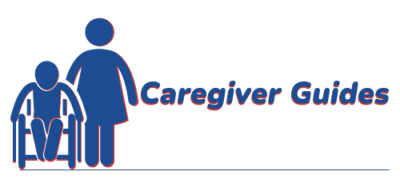
As all of us make our ways through life, it becomes increasingly important to stay active, and walking is a fantastic way to do this. This is especially true for senior citizens. Let’s take a look at how a regular walking program can be incredibly beneficial. Overall, it’s a gentle, low-impact exercise that’s kind to your joints, yet effective in keeping your body moving and healthy, and, you’ve been doing it all your life.
Let Us Know What You Need
Take Our Survey
An Easy Way to Keep Your Heart Fit
Walking (or ambulation) helps maintain your cardiovascular health, keeping your heart strong and improving circulation. It does so by strengthening the heart muscle and improving circulation. When you walk, your heart rate increases, which means your heart pumps more blood to your muscles. This increased activity helps to strengthen the heart muscle over time.
Improved circulation from walking also means more oxygen and nutrients are efficiently delivered throughout your body, and waste products are removed more effectively. On the other end, regular walking can help to lower blood pressure and reduce your cholesterol levels, which are also important factors in your ability to maintain a healthy cardiovascular system. In essence, walking is a gentle yet effective way to keep your heart and blood vessels in good shape, especially as you age.
A Natural Treatment for Osteoporosis
It’s also great for your bones and muscles, helping to keep them strong and reducing the risk of osteoporosis and muscle weakness. Walking is what is called a weight-bearing exercise. This simply means that you, rather than a bike or chair, are holding up your body weight against gravity.
When you’re weight bearing, this encourages your bone cells to grow and strengthen. The process helps to increase bone density (how hard and dense your bones are) and reduces the rate of bone loss that can occur with aging. Regular walking, especially at a brisk pace, can be particularly effective in maintaining healthy bone mass and reducing the risk of osteoporosis, which makes your bones weak and more prone to fractures. So, making walking a part of your regular activity routine is a good way for you to support your bone health.
Walking Enhances Mental Acuity and Slow Mental Decline
But it’s not just about physical health. Walking can be a wonderful way to stay mentally sharp in several ways. Regular physical activity like walking has been linked to better memory, attention, and problem-solving skills.
Regularly getting out and getting moving reduces the risk of cognitive decline primarily through increasing the blood flow to your brain. This increased circulation delivers essential nutrients and oxygen, helping with overall brain health and potentially stimulating the growth of new brain cells. Walking also fosters neuroplasticity, which is your brain’s ability to form new neural connections within itself. This is crucial for maintaining your cognitive functioning as you age.
Plus, like all physical activity, walking is linked to lower levels of stress and anxiety, which can negatively impact cognitive health. Exercises, such as walking, triggers the release of chemical called endorphins, often known as “feel-good” hormones, which can create feelings of happiness and also reduce the perception of pain. This biochemical change plays a significant role in combating stress and depression.
It’s a chance to get outside, enjoy some fresh air, and engage with your community, which is great for a person’s mental well-being. You could also make it a social activity. If you have a family member, friend or a neighbor who would like to join you it could give you time to catch up and add some variation to the day (which also stimulates the brain). Believe it or not, engaging with others and navigating through different surroundings can help keep the mind active and alert.
Walk Your Way to a Good Night’s Sleep
Oh!, Let’s not forget the sleep benefits. Regular walking can help improve your sleep quality, which is so important as you get older. Good sleep is linked to better memory, mood, and overall health.
Being active outside, especially in daylight, can help synchronize your body’s natural sleep-wake cycle, or circadian rhythms. Exposure to natural light during the day will help you maintain a healthy circadian rhythm, making it easier to fall asleep at night. Having tired muscles will help you stay asleep.
In short, walking is a simple, yet powerful way to take care of both your body and mind. It’s an easy exercise, doesn’t take any equipment, and, you’ve been doing it all your life. The benefits are well worth the effort. So, how about taking a little stroll today? It could be the start of a wonderful, healthful habit.

Bryan Williams
Physical Therapist
is a licensed therapist with near 30 years of professional experience treating a diverse patient population in a multitude of settings. With simple strategies, he educates and empowers his clients with simple strategies to help them move better and with less pain.

